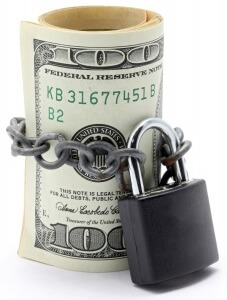Thanks to blogger Charlotte Fletcher for this guest post. (Graphic courtesy FreeDigitalPhotos.net)
Today’s modern technology has opened up numerous opportunities for those who want to earn a living, or even just some spending money, by writing from their home. Unfortunately, those opportunities can also bring risks. It can be a good idea for a freelance writer to invest in a couple of insurance policies.
Freelance articles written for blogs or websites can have a limitless lifetime, increasing the chances of angering someone. Someone trying to earn a living from writing out of their home likely also will need something to cover their health if something should happen.
*Home insurance – Many freelancers working out of an office in their home believe their homeowner’s insurance will cover them if something is damaged in the area that is set aside for the work space. This may not be so, however. It will probably be necessary to have an addition put on the current policy or to purchase a separate one for the business area.
*Health insurance – This may not be the problem it once was due to changes made to the healthcare system, but those working out of the home will need to look into health insurance if they are not able to acquire it through their spouse’s plan. One choice is to remain independent and seek out a health plan, but the premiums are likely to be higher. A better option is to try to join a pool, such as a writer’s guild or the National Writers Union. Being part of a larger group that spreads the claims around can result in lower individual prices.
*Libel insurance – Even for those writers who do not intend on writing on controversial subjects, purchasing libel insurance can be a good idea. Those writing articles for established media outlets or manuscripts for publishers may not need it since those organizations will carry their own. Bloggers and those writing for websites may not have this defense available. Again, certain writer’s groups may provide their members options for liability insurance, which protects the writer from claims of defamation, copyright infringement and invasion of privacy. These claims, even if later dropped, can result in many days of lost work for a freelance writer until the case is decided. Policies can help pay for punitive damages, legal fees, damages, awards and court costs.
Writing from home can be a dream job for many people and the Internet has made it more possible than before. Freelancers will want to look into a variety of insurance policy possibilities in order to provide themselves with some peace of mind. These can help cover medical payments if the writer becomes sick or injured, protect equipment within the home and can even keep the scribe creating articles if a legal claim is made.
This article has been contributed by Charlotte Fletcher on behalf of Monkey, an insurance comparison website.


REGARDING LIBEL:
Having written commentaries for several years I’ve learned a simple thing to do when you really want to say something negative about someone is the way you phrase it. If for example you wanted to say something about the individual who wrote the above item; you can begin a sentence by saying
“In my opinion…”
“One might think that,,,”
“I believe that…”
“What could be the reason, is it possible…”
and then say “…that the reason this individual wrote the above item, might have to be that a family member possibly be an insurance agent looking for business.”
In the example above, everything being said is pure conjecture, a feeling, a thougth, an idea, In the above nothing is being stated as a fact. And at the same time the example shown might also raise the same question in the minds of those who might read it.
NEVER STATE SOMETHING AS A FACT UNLESS YOU HAVE SOLID CONCRETE EVIDENCE TO BACK YOU UP
This has only been my opinion regarding this matter.
I believe that this is a very good point 🙂
It’s also worth saying that if you are blogging make sure that libel insurance (actuallynot called somethingthe different) covers digital/ electronic mediums (sometimes excluded in standard coverage) and that they are not asking for protected information from subscribers like DOB that would leave them answerable to state and federal data protection laws in the event of a data breach.